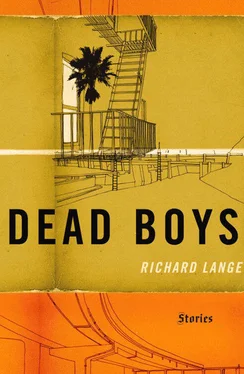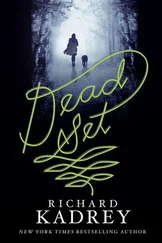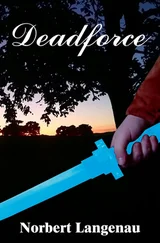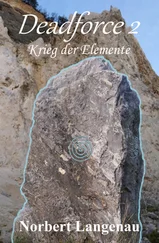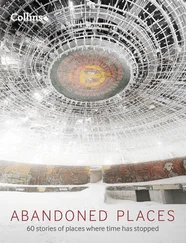Grady hands me the gas can. Following his shouted instructions, I douse the interior of the Malibu, the tires, the engine. The fumes sting my eyes, my swollen lips. I want to be the one to put the spark to it, too, but Grady won’t allow that. He tells the girls to move across the road, to the Joshua tree. I stay where I am, beside him.
He strikes a road flare. It sputters and catches, giving off a rosy glow. With a smooth underhand toss, he sends it through the open window of the Malibu. There’s a loud roar, and the sun rises inside the car, finds itself trapped by the roof, and so forces itself out wherever it can. A fiery arm reaches for us. Grady runs, but I don’t see the point. The air begins to crackle around me, and hot fingers caress my cheeks, my nose, plunge into my eyes. My tongue crumbles into ash when I laugh, my teeth are nubbins of coal.
Grady yanks me backward by my collar. He rolls me in the sand to put out the fire. I sit next to the Joshua tree in the mud my piss made and stroke the remnants of the dress that still cling to me. The clothes I’m wearing beneath it are untouched. Across the road, the Malibu pops and whistles, a musical inferno. Birds chirp in the false dawn, jackrabbits awaken confused. Black smoke billows up to obscure the marauding stars.
“You okay?” Grady asks. The girls await my answer, hands over their mouths.
“I’m fine,” I say.
We use the rest of the beer to wash the soot off my face. And I am fine, except that when I close my eyes there are flames dancing on the backs of the lids.
WE’LL STOP IN Barstow for booze and cigarettes. Back in L.A., Christina’s sister will crash at my apartment for a few days, and it will be fun and all, but we’ll finally come to our senses. I’ll tell her to leave, and she’ll try to stab me with a broken tequila bottle. After that I’ll be lonely for a good long while, but then things will get better. I’ll find a job, lose it, find another. A few years from now I’ll come into enough money to take a trip to Hawaii. I will not enjoy it. There will be birds there, flowers red as candy, and waves just like in the brochure, but they’ll all remind me of Mercedes. I’ll stand on the shore and scream descriptions of everything into the night, descriptions that will tremble and falter and fall, and be gobbled up by a black, buzzing sea.
Everything Beautiful Is Far Away
I’M NOT SUPPOSED TO BE WITHIN FIVE HUNDRED YARDS of the house, but rumor has it she’s hired a gang of Vietnamese hard cases to get rid of me, so order of protection or no order of protection, I’m going in. The back door is unlocked, and her mom and dad are just sitting down to dinner. They look like a couple of ghosts; I could put my fist right through them.
We had Christmas together at that table, Valentine’s Day. Her dad once complimented me on how clean I kept my car. I tell them not to mind, go ahead and eat. I lean against the kitchen counter to wait for them to finish. The sun pushes red through the window, and the refrigerator and Crock-Pot and microwave are hot to the touch.
“What’s this about?” her dad asks.
“Does a gang of Vietnamese hard cases ring a bell?”
“Lana moved to Chicago six months ago,” her mom says.
“Nice try.”
Her dad wipes his mouth with a napkin, then stands and walks out of the room.
“It’s true,” her mom continues. “You remember all the phone calls you made here afterward.”
“My finger slipped,” I explain.
Her dad reappears, carrying a shotgun. I try to grab something out of the dish rack to defend myself, but my knees give way, and I end up scrambling out the back door on all fours.
I’ve always thought their yard was special, the fruit trees and the fishpond. Concrete deer graze in the bushes and something is always blooming. I hop over the fence just as her dad appears on the patio. He points the gun at me, the same man who admired the shine on my chrome that time.
“That isn’t necessary,” I yell.
A couple of cop cars howl past as I drive out of the neighborhood. It’s not even dark yet, but already the gas stations and grocery stores are all lit up. There’s no such thing as a hiding place. Through a window I can see people waiting in line at McDonald’s. They comb their hair and smile at their own reflections.
In order to shake any tails I go home via a new route, cutting corners, doubling back, and running a few reds. After a while even I don’t know where I am. It seems impossible that I could get so lost in the city I grew up in.
MARTY BLAMES HIS worthlessness on one awful season of Little League. When he starts in on it sometimes, the whole bar yells at him to have another drink. You have to wonder about a guy who can trace thirty years of failure back to a grounder he bobbled when he was eight. You also have to wonder about the people who call themselves his friends but won’t let him get it off his chest.
In crowded places I sometimes have trouble with conversations. Here at the bar, for example, a dude can be talking right to me, but I can just as clearly hear the person sitting next to him, and the person sitting next to that person, which leads to confusion. It’s a filtering problem, I guess. Like drowning in words.
Marty’s sitting near the TV with three packs of Camels stacked in front of him. He smiles and points hopefully at his glass.
“Jennifer, honey,” I say, “get Marty another on me, okay?”
I help when I can.
Marty inherited a chimp named John Wayne from an uncle who had something to do with the rodeo. Marty thought he might put the chimp in the movies, but all John Wayne did was drink beer and smoke cigars. He got loaded one night and set Marty’s apartment on fire, and then a few days later he bit off the tip of Marty’s nose. When the cops showed up, John Wayne charged them. They had no choice but to shoot. Marty still carries the newspaper clipping in his wallet.
I’M CAREFUL COMING up the stairs into my building. One of the kids who lives here is riding his tricycle in the hall. I ask him if he’s seen anyone strange snooping around, and he stares at me with the blankest face.
My place is what they call a bachelor. It doesn’t have a kitchen, just a room to sleep in and a bathroom. It’s against the rules, but I snuck in a hot plate so when I get tired of fast food I can heat a can of soup or spaghetti. As soon as I find one cheap, I’m buying a little refrigerator. Then I’ll be able to cook bacon and eggs some mornings.
I sit in my recliner, which faces the only window in the room. The window looks out onto the brick wall of the apartment building next door. I don’t have a regular TV schedule other than the eleven o’clock news. A man who comes by the newsstand gets the listings out of the Sunday paper and underlines everything he’s going to watch for the entire week. That’s a little much.
At times like these I wish I still smoked.
They’ve got us on some kind of flight path here. All night long helicopters clatter back and forth, rattling the windows and the loose change on the coffee table. I tried to organize the tenants in the building to make a complaint to the city. I typed up a letter at the library, xeroxed it at my own expense, and slipped it under every door. The only response came from a squirrely guy on the first floor who calls himself an actor but who I know sells office supplies over the phone. He stopped me in the lobby and asked to borrow twenty dollars.
JAMES TELLS ME some people from a magazine are coming by to take pictures. They have his permission. They show up before noon, while I’m straightening the out-of-state papers. A bee has been hovering around the stand all morning, making me nervous. I try to swat it a few times, but it reads my mind.
Читать дальше
